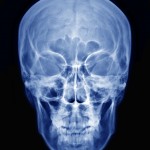
Fractures of the mandibular condyle account for between a quarter and a third of mandibular fractures. However, there is still controversy about the best method of treatment . A recent meta-analysis by Kyas et al ( Dental Elf 20Apr 2012) suggested that open reduction and internal fixation (ORIF) may be as good if not better than conservative management although the quality of the supporting evidence was poor. The aim of this review was to compare the influence of objective and subjective treatment outcomes after open versus closed treatment of mandibular condyle fractures on quality of life, based on the current literature.
The Medline and Embase databases were searched for retrospective or prospective studies that compared open versus closed treatment of mandibular condyle fractures. Studies in English German and Dutch were included.
- 36 articles were included ( 28 retrospective, 8 prospective).
- Nine outcome variables were assessed
- radiological outcomes ( n=24),
- range of jaw motion (n=30)
- occlusal outcomes (n=22)
- postoperative pain (n=14)
- facial nerve paralysis (n=14)
- masticatory function (n=14)
- TMJ complaints (n=7), ]
- scarring (n=7)
- facial (a)symmetry (n=6).
- no studies evaluated quality of life outcomes.
The authors concluded
In recent years, numerous studies have been published on the complex matter of how best to treat a fractured mandibular condyle. Only three studies have looked at clinically relevant subjective parameters. No study had a patient-centred approach in the comparison of treatment outcomes, assessing for example the effect of these injuries on the patient’s quality of life
Comment
The recent review by Kyas et al ( Dental Elf 20th Apr 2012) included 20 studies included 4 randomised controlled trials compared with this review which included 36 article , although the focus of the review was different. Only two databases were searched for the review and it is not reported whether study inclusion and data abstraction was conducted independently. There is increasing interest in the use of patient reported outcome measures (PROMs) in assessing the effectiveness of care and this is likely to of greater importance in areas like this where there are significant differences between the invasiveness of the procedures and limited evidence on which is the most effective approach.
Links
Kommers SC, van den Bergh B, Forouzanfar T. Quality of life after open versus closed treatment for mandibular condyle fractures: A review of literature. J Craniomaxillofac Surg. 2013 Feb 2. doi:pii: S1010-5182(13)00037-1. 10.1016/j.jcms.2013.01.022. [Epub ahead of print] PubMed PMID: 23384574.
